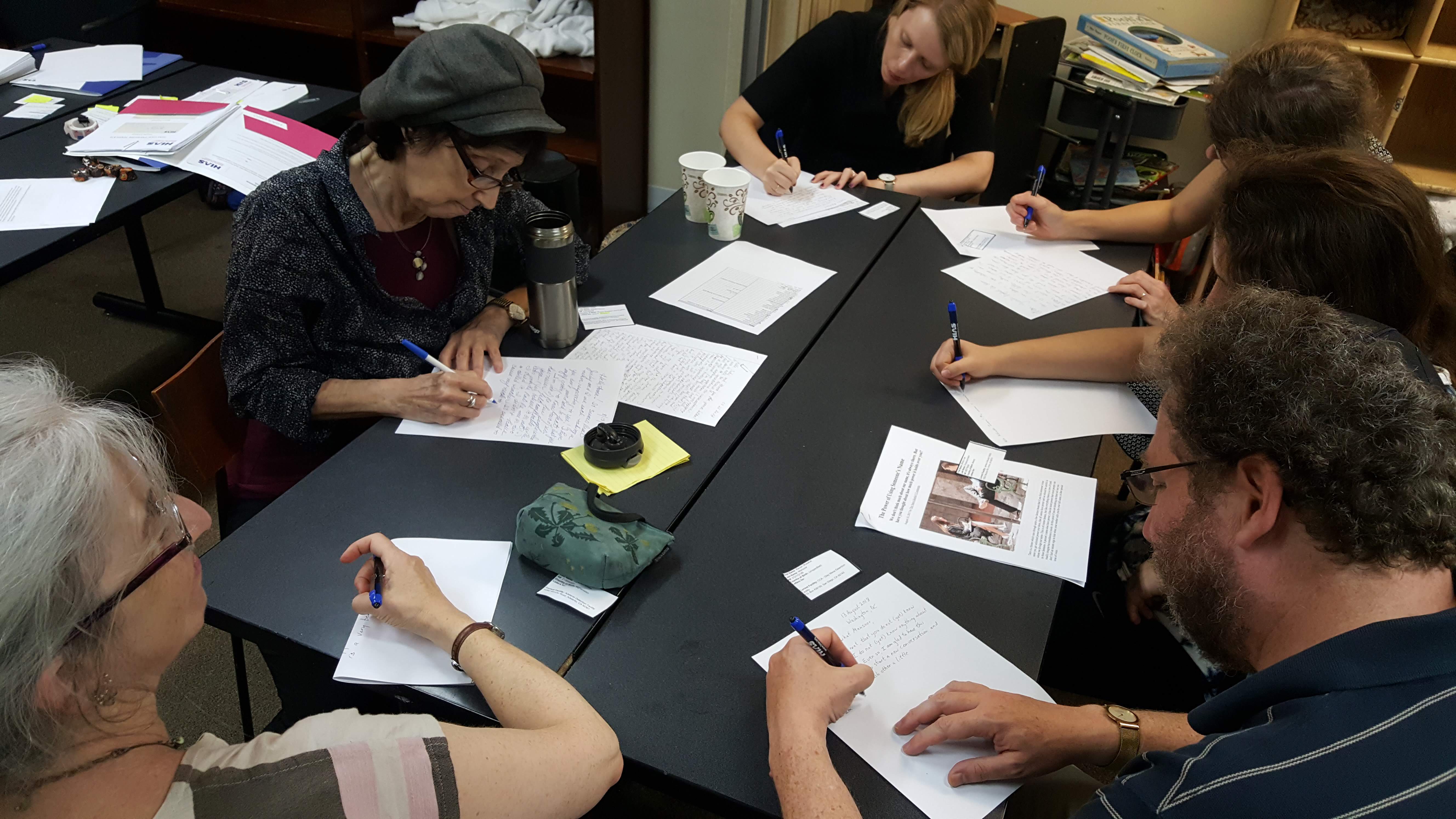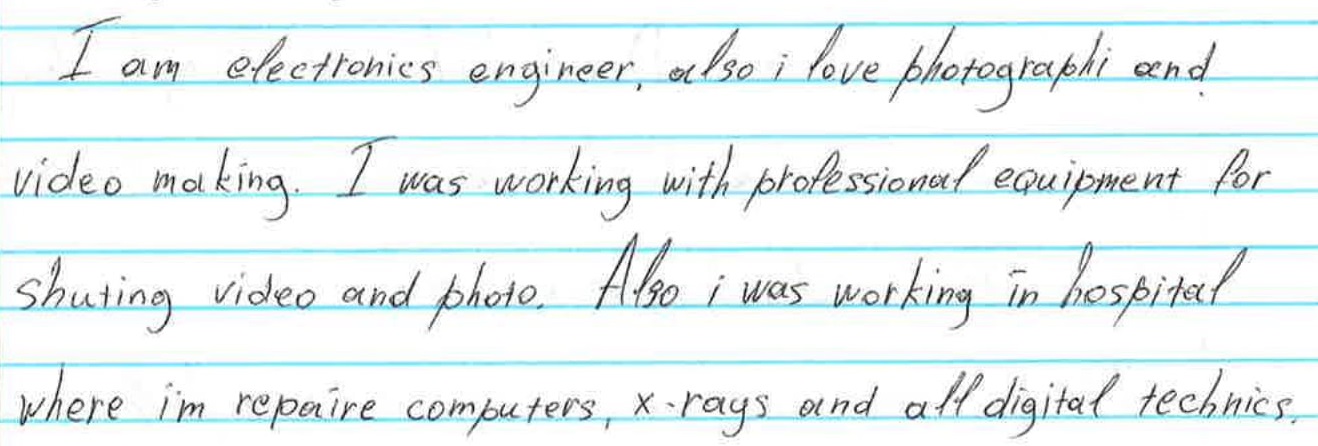Dear Real Person: Writing Letters to Detainees
By Andrea Gagne, HIAS Public Affairs
Aug 22, 2018
What’s in a name?
If you had lost everything, and found yourself in a detention center, your name stripped away and replaced with a registration number, what would it mean to you for someone to call you by your name?
At this moment, thousands of people are detained in more than 200 centers across the United States. Their identities are taken from them and replaced with an “A” number (alien registration number) to which they are conditioned to respond. While the average length of detention fluctuates, there are some who remain trapped in these conditions for years. Many of these people entered the country seeking asylum, which is a right guaranteed by both international and U.S. law.
These detainees are who HIAS aims to reach with our monthly letter-writing program. Every month, volunteers—college students and retirees, people of all faiths, U.S.-born citizens and naturalized former-refugees—gather in Washington, D.C., at the Edlavitch DC Jewish Community Center. People come to connect with people from different backgrounds and give those who are suffering a sense of compassion and hope.
This August I took part in my first letter-writing session. For this program, HIAS partners with Freedom for Immigrants (formerly CIVIC), an organization working to end immigration detention.
We began the evening by sharing a meal as diverse as we were, with a mix of Syrian, Eritrean, and Filipino dishes. As we ate, one volunteer led us in an educational exercise to explore our own names, what they represented to us, and how it would feel to have this identity torn from us. Another volunteer shared her story of how she had her name legally changed upon immigrating to the United States, to a version which would be easier for Americans to pronounce.
I had the chance to reflect on my own experiences working abroad in direct services, trying to maintain records in English of names from languages with different alphabets, and struggling to find matching records with different spellings.
Then, it was time to write our letters. Several of the returning volunteers had received messages from their ongoing pen-pals, while others who were new to the program received names of detained asylum seekers who had requested to be paired with a volunteer. More experienced volunteers shared some of the topics their pen-pals enjoy writing to them about such as work, hobbies, foods, culture, books, movies, and music.
There are some topics, like home and family, that elicit a range of emotions. Some pen-pals prefer to focus on the future because it is likely painful to talk about the past. Others find comfort in reminiscing about their homes.
HIAS’s legal and advocacy teams are working every day for our asylum system to once again reflect our American and Jewish values. In the meantime, actions like this letter-writing program can return a sense of hope and dignity to some asylum seekers. It reminds them there are Americans who view them as full and real people worth their time and attention, and it shows them that they have not been forgotten. This small reassurance may give someone struggling to get through the day a boost to their morale and help them to keep fighting another day.
Click here for more information on the letter writing program in New York and Washington, D.C., and visit HIAS.org to see how you can help asylum seekers in other ways.








